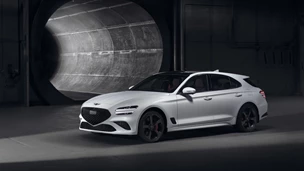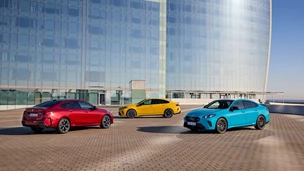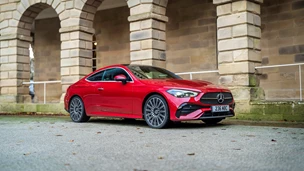Say “hybrid” to someone and they’ll almost certainly reply “Toyota Prius”, because Toyota was masterful at not only designing one of the first cars of its type, but selling it in large numbers to customers including Hollywood A-listers. Now in its third generation, it’s a popular choice with private and business customers thanks to its low running costs and tax exemption.
The Prius now has far more rivals than when it first launched, including hybrids like the Audi A3 e-tron, fully electric cars such as the Nissan LEAF and economical diesel models like the Volkswagen Golf BlueMotion.
Performance
There are two versions of the Prius, the hybrid and the plug-in hybrid. The latter has a larger electric motor and battery pack, allowing it to be charged from a home electricity supply or charging point.
With a full battery it can travel for around 15 miles on electricity alone, making some commutes possible without using any fuel. Both versions have a 136bhp petrol engine as well as the electric motor and can reach 62mph in 10.4 seconds.
Power is metred out by a CVT automatic gearbox, providing a constant stream of acceleration with no shifts. It’s efficient, but makes the driving experience feel detached, so the Prius won’t please enthusiast drivers.
The hybrid model has 36bhp in electric-only mode, so it’s possible to drive without the petrol engine chiming in for just over a mile if you’re very careful at low speeds, say in a town centre.
Ride and Handling
The Prius works best in town, where its quiet engine, automatic gearbox and light steering make it incredibly easy and stress-free to drive.
The Prius works best in town, where its quiet engine, automatic gearbox and light steering make it incredibly easy and stress-free to drive. If you live in a congested city, the Prius makes perfect sense. It becomes less satisfying along country lanes and faster A-roads, because light steering and economy tyres add up to a vague driving experience unlikely to encourage you to drive briskly. The most satisfying way to drive is to try and avoid hard braking and acceleration to save the most amount of fuel. Ride comfort is generally good, but large potholes can cause a thud to be felt through the suspension, particularly when 17-inch alloy wheels are fitted. Body roll is fairly well contained, partly thanks to the battery pack’s positioning low in the car’s chassis.
Interior and Equipment
Since it first went on sale Toyota has sold 3.3 million Prius’ worldwide and 64,000 in the UK alone. The Japanese manufacturer has sold over seven million hybrid vehicles since 1997.
There’s a feeling of space inside the Prius thanks to its huge windscreen and light upholstery fabric. With no need for a conventional gearlever, the centre console is also free from clutter and the selector for the automatic gearbox looks very Star Trek. It’s seats are somewhat unsupportive, as if to reiterate the Prius’ lack of sporting intent. The Prius is also starting to feel its age, with some scratchy dashboard plastics and a green LCD dashboard falling well behind the Audi A3 e-tron and Golf BlueMotion’s interior. The entry-level T3 trim comes with tiny 15-inch alloy wheels, air-con, Bluetooth and a touch-screen. The T4 version gets larger 17-inch wheels, keyless entry, cruise control, a rear parking camera and JBL speakers. Plump for the top T Spirit model and it comes with LED headlights and sat-nav. It’s even available with a solar powered system to keep the car ventilated while parked.
Cost
The Prius enjoys strong resale values on the used car market, bringing down the overall cost of ownership.
The Prius is quite expensive as a result of its hybrid technology, starting from around £22k, or £28k for the plug-in hybrid, compared with around £21k for a Golf BlueMotion. But, it won’t cost you much to run, with official figures of 71mpg for the standard Prius and 135mpg for the Plug-in Hybrid, although you’ll need to charge the batteries of the Plug-in regularly to achieve this incredible figure in real-world driving. Both versions of the Prius are free to tax, with the Plug-in emitting just 49g/km of CO2. Largely because of its reputation for low running costs, and Toyota’s reputation for impressive reliability, the Prius enjoys strong resale values on the used car market, bringing down the overall cost of ownership.
Our Verdict
The Toyota Prius is incredibly easy to drive and cheap to run thanks to its clever use of petrol and electric propulsion, harnessing energy when you decelerate. It’s also particularly quiet and fitted with an impressive roster of equipment. It’s quite expensive though, and won’t suit everyone. Customers after a more involving driving experience or a more modern interior may prefer the Golf BlueMotion. The Prius also has a unique eco-conscious image, suiting some more than others.




